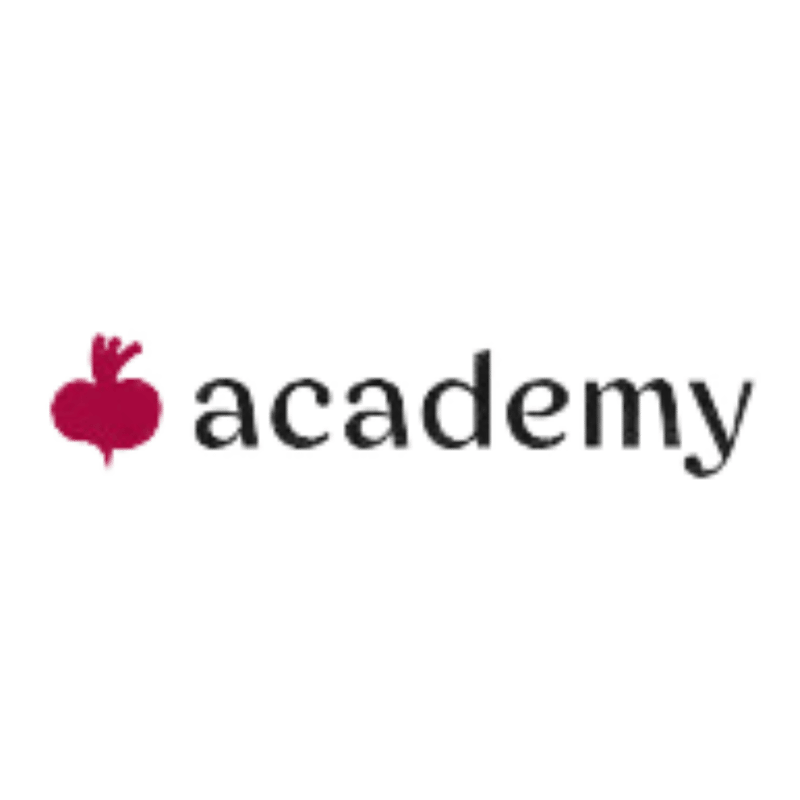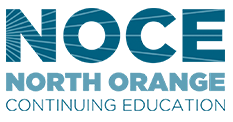
Financial aid (may be available)

Financial aid (may be available)

Financial aid (may be available)

Financial aid (may be available)
No cost info

$220 to start
$440 total

No cost info
$3,550 total
Financial aid (may be available)
OPTI Medical Systems supports the Online Quality Assurance Program (QAP) to add value to your OPTI CCA-TS2 analyzer. Online QAP facilitates the evaluation of quality control (QC) data with that of your peers for trends and shifts. Do not miss out on these valuable services that OPTI Medical provides OPTI analyzer users at no additional charge.
No cost info
The Graduate Certificate in Quality Assurance Compliance provides an in-depth knowledge of the global regulatory and compliance requirements for the development, marketing approval, and clinical utilization of biomedical products in today’s dynamic global healthcare environment.
No cost info
This program is designed for the chemist, bio-chemist or biologist in the pharmaceutical and biologic industry new to quality assurance and control, and is beneficial to senior year undergraduates and graduate students (using concurrent enrollment) interested in a career in QA/QC.
The program focuses on the quality requirements for the production and control of biologics and drugs, and the differences between quality control and quality assurance and their interaction with manufacturing. It highlights the importance of implementing and maintaining a quality system during the early stages of drug development, including the plethora of documents and controls necessary to make such a system effective. Guidelines and regulations from the FDA and the California State food and drug branch regulate the production of drug products. Quality Assurance (QA) monitors the manufacturer's compliance to these guidelines and regulations.
Instruction covers how to write, issue and control SOPs; manufacturing directions; and how to review and archive a batch history and other relevant documents. Emphasis is placed on conducting inspections and vendor audits for compliance to cGMPs to include contract manufacturers, bulk pharmaceutical chemical manufacturers and contract test laboratories. The program covers cGLPs and their applications to audits of facilities that provide toxicological services. Details on compiling, writing and archiving audit reports is provided.
No cost info
Quality assurance training helps applicants for understanding the basic concepts of information technology and software testing which help them excel as Quality Assurance (QA) specialists. The quality assurance course also covers physical products in determining defects in manufactured products and preventing them, pre-production, SDLC-Software Development Life Cycle, Production Environment vs Sandbox Environment, Mantis Bug Tracker, and many more. During the QA online training, you will learn how to decode the application of dynamic and static techniques, conduct walk-thoughts and audits, create a quality analysis, perform boundary value analysis, and test plan hands-on through this Quality assurance certification training.
No cost info
Mount St. Mary’s University is home to Maryland’s only certificate in quality assurance and regulatory science (QA/RS). The fully online program prepares you to lead your company through the efficient delivery of high-quality products within a competitive market.
No cost info
Are you interested in a career in quality assurance? Do you want to ensure that products and services meet the highest standards? If so, then taking quality assurance classes can provide you with the necessary skills and knowledge to excel in this field. In this blog post, we will explore what quality assurance is, the training requirements, what to look for in a class, what to expect from the day-to-day class, the certification process, how to find related jobs, and other classes you can take after becoming a quality assurance professional.

Quality assurance is a critical component of any industry, ensuring that products and services meet the highest standards. Quality assurance professionals are responsible for monitoring and evaluating processes to identify and resolve any issues that may arise. They play a vital role in maintaining customer satisfaction and ensuring the success of a business.
Quality assurance is a systematic process of ensuring that a product or service meets specified requirements and standards. It involves the implementation of processes, procedures, and systems to prevent defects and ensure consistent quality. Quality assurance is essential in various industries, including manufacturing, healthcare, software development, and more.
To become a quality assurance professional, you will need to undergo training to acquire the necessary skills and knowledge. While there are no specific educational requirements, most employers prefer candidates with a bachelor's degree in a related field such as engineering, business, or statistics. However, vocational training programs and certifications can also provide you with the required qualifications.
When searching for quality assurance classes near you in Toledo, there are several factors to consider to ensure you find a reputable and comprehensive program. Here are some key things to look for:
Accreditation: Ensure that the training program is accredited by a recognized accrediting body. This ensures that the program meets certain quality standards and that your certification will be recognized by employers.
Curriculum: Review the curriculum to ensure that it covers all the essential topics and skills needed for quality assurance professionals. Look for courses that cover quality management systems, statistical analysis, process improvement methodologies, and quality audit techniques.
Faculty: Research the qualifications and experience of the instructors. Look for instructors who have real-world experience in quality assurance and can provide practical insights and guidance.
Facilities and Resources: Check the training facilities and resources available to students. Quality assurance often involves hands-on training and the use of specialized tools and equipment. Ensure that the program provides access to these resources.
Quality assurance classes typically provide a mix of theoretical knowledge and practical training. Here's what you can expect from the day-to-day class:
Classroom Lectures: You will attend lectures to learn about the principles, concepts, and best practices of quality assurance. These lectures may be conducted by industry experts or experienced instructors.
Hands-on Training: Quality assurance involves practical skills, such as conducting tests, analyzing data, and implementing quality improvement processes. You can expect hands-on training to develop these skills.
Group Projects: Collaborating with fellow students on group projects can help you gain practical experience in solving real-world quality assurance challenges. These projects also enhance your teamwork and communication skills.
Case Studies and Simulations: Case studies and simulations can provide you with an opportunity to apply your knowledge and skills to real-life scenarios. This helps you understand the complexities of quality assurance in different industries.
After completing your quality assurance training, you may choose to obtain a certification to enhance your credentials and job prospects. Certification demonstrates your expertise and commitment to the field. The certification process typically involves the following steps:
Eligibility: Check the eligibility requirements for the certification you are interested in. These may include specific educational qualifications and work experience.
Exam: Prepare for and pass the certification exam. The exam assesses your knowledge and skills in quality assurance.
Continuing Education: Maintain your certification by completing continuing education requirements. This ensures that you stay up-to-date with the latest developments and best practices in quality assurance.
Once you have completed your quality assurance training and obtained certification, it's time to start your job search. Here are some ways to find related jobs:
Online Job Boards: Search for quality assurance jobs on popular job boards like Indeed, LinkedIn, and Glassdoor. Use relevant keywords such as "quality assurance," "QA analyst," or "quality control."
Networking: Attend industry events, join professional organizations, and connect with professionals in the field. Networking can provide you with valuable job leads and opportunities.
Company Websites: Visit the websites of companies in industries that interest you. Many companies post job openings on their websites before advertising them on job boards.
Staffing Agencies: Consider partnering with staffing agencies specializing in quality assurance. They can help match you with relevant job opportunities and provide guidance throughout the hiring process.
After becoming a quality assurance professional, you may choose to further expand your skills and knowledge by taking additional classes. Here are some other classes you can consider:
Six Sigma: Six Sigma is a data-driven approach to process improvement. Taking Six Sigma classes can enhance your problem-solving skills and make you a valuable asset to organizations focused on quality and efficiency.
Project Management: Project management skills are highly valued in quality assurance. Taking project management classes can help you effectively lead quality improvement projects and manage cross-functional teams.
Risk Management: Risk management is an essential aspect of quality assurance. By taking risk management classes, you can learn how to identify, assess, and mitigate risks to ensure quality and compliance.
Quality assurance classes provide the necessary training and skills to excel in this field. Whether you are just starting your career or looking to enhance your existing knowledge, quality assurance classes near you in Toledo can help you achieve your goals. Remember to consider factors such as accreditation, curriculum, faculty, and resources when selecting a class. Obtaining certification can further boost your credentials and job prospects. Dreambound can help you find quality assurance classes and other vocational training programs to kickstart your career in the industry. Start your journey today and become a quality assurance professional!
Dreambound has you covered with a series of detailed guides, each designed for a different city. And if you're elsewhere or considering a move, we've got more guides that might fit your needs.
Contemplating a transition in your career or exploring various professional paths? Dreambound has written comprehensive guides on nearly every type of program to aid you in your decision.
Dreambound's platform allows prospective students to find the right educational program for them through searching, filtering, and connecting with our extensive selection of career & technical education partners.
Dreambound has over 70 programs across healthcare, technology, business, and industrial trades. This includes programs such as Medical Billing, Cybersecurity, and welding.
Some of our schools offer financial aid for those who qualify. Many others offer payment plans, where you can pay the cost of class over time.
Yes, Dreambound offers many online programs. On Dreambound's search, you can filter by online, in-person, and hybrid (part online, part in-person).
Dreambound is completely free for you to use! We are supported by schools and organizations who pay to advertise on our website, so we can offer all of our career resources for free.